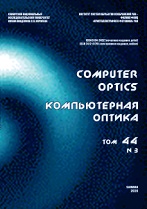|
This article is cited in 8 scientific papers (total in 8 papers)
IMAGE PROCESSING, PATTERN RECOGNITION
The accuracy dependency investigation of simultaneous localization and mapping on the errors from mobile device sensors
V. V. Myasnikovab, E. A. Dmitrieva
a Samara National Research University, 443086, Samara, Russia, Moskovskoye Shosse 34
b IPSI RAS – Branch of the FSRC “Crystallography and Photonics” RAS, 443001, Samara, Russia, Molodogvardeyskaya 151
Abstract:
Monocular Simultaneous Localization and Mapping (SLAM) is one of the most complex and well-known problems, affecting several scientific fields: robotics, computer vision, virtual reality. This paper aims to study the SLAM problem for the mobile device with a monocular camera and sensors: accelerometer, gyroscope and digital compass. The latter allow to obtain an additional estimation of a mobile device position and orientation. The aim is to assess the potential suitability and efficiency of using extra information from inertial sensors to improve the solution quality and to reduce the time to obtain the solution. The experimental part of the study, including both model and field experiments, allowed to determine the requirements for permissible errors introduced by the sensors of the mobile device. For a specific model of a mobile device, it is shown that the electronic compass meets these requirements, while the errors of the inertial sensors used to determine the movements are unacceptably large.
Keywords:
SLAM, visual odometry, scene reconstruction, mapping, mobile device, inertial sensors, compass.
Received: 30.05.2019
Accepted: 05.06.2019
Citation:
V. V. Myasnikov, E. A. Dmitriev, “The accuracy dependency investigation of simultaneous localization and mapping on the errors from mobile device sensors”, Computer Optics, 43:3 (2019), 492–503
Linking options:
https://www.mathnet.ru/eng/co669 https://www.mathnet.ru/eng/co/v43/i3/p492
|

| Statistics & downloads: |
| Abstract page: | 235 | | Full-text PDF : | 148 | | References: | 28 |
|




 Contact us:
Contact us: Terms of Use
Terms of Use
 Registration to the website
Registration to the website Logotypes
Logotypes








 Citation in format
Citation in format 
